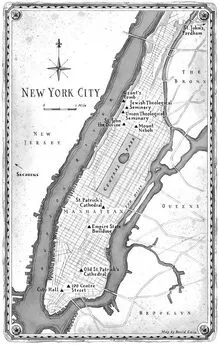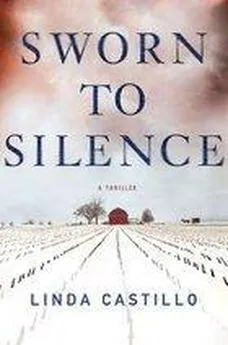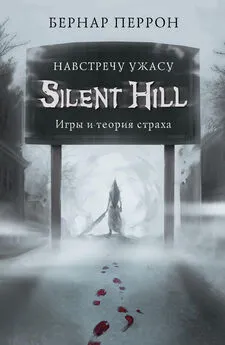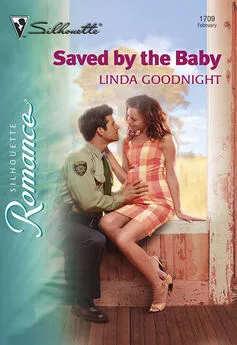Fairstein, Linda - Silent Mercy
- Название:Silent Mercy
- Автор:
- Жанр:
- Издательство:неизвестно
- Год:2011
- ISBN:нет данных
- Рейтинг:
- Избранное:Добавить в избранное
-
Отзывы:
-
Ваша оценка:
Fairstein, Linda - Silent Mercy краткое содержание
Silent Mercy - читать онлайн бесплатно полную версию (весь текст целиком)
Интервал:
Закладка:
“Peterson says he’ll give us one.” I leaned forward, peering over Mercer’s broad shoulders as we rounded a curve, crossed the tracks again, and came upon a sea of white trucks, maybe thirty of them.
Mike pulled up even with the second patrol car. “What have we got, guys?”
The caravan of commercial vehicles were all the same shape, double the size of vans but only half as large as eighteen-wheelers. They were painted a glossy white, with strips of metallic silver material outlining their sides and tops. Unlike the vintage freight cars we had just passed, this looked like an entirely new fleet of trucks.
The cop in the passenger seat pointed with his right hand, and I followed the tip of his leather glove. “That’s a warehouse parking lot.”
“Active?” Mike asked, opening the door and stepping out of the car. Mercer and I followed suit.
“Yeah. It services one of the food-delivery companies based in Newark.”
Close, but not so close that anyone in the main warehouse would be stationed in this lot at all hours.
Mercer and I walked up behind the last van and around its side. Like all commercial vehicles, its name and logo were stenciled on it in bright red lettering.
The words ALDEN’S ANGUS appeared above a picture of a cow grazing in a pasture, blissfully unaware of its fate.
“Are these trucks refrigerated?” I asked Mike, who was on his knees examining the underside of one of them.
Chat Grant had complained of the cold when she called her sister. I knew Mike had that on his mind.
“Beef delivery trucks? Count on it, Coop.” He stood up and turned to the Secaucus cops. “Get your boss to call the main shop in Newark. Somebody needs to get over here yesterday and open every one of these up.”
The driver got back in his patrol car and radioed headquarters.
Mike kept shouting questions. “Find out how many trucks like this there are in the company. How many are supposed to be here. Somebody has to tell us if any of them are missing.”
“I’m not waiting for that answer,” Mercer said, stepping away to make his call. “I’m telling Peterson to get out an APB right now. Use it with the photo of Chastity Grant. I-95 runs from Maine to Florida and passes right through the ’hood. If she isn’t in one of these trucks right here, then our boy is on the run with her.”
“Are you thinking what I’m thinking, Mike?”
“A mobile abattoir. A slaughterhouse on wheels.”
A chill went through me. We had lost the afternoon sun and the March wind was showing off its strength.
“Help yourself to one of these trucks and you could travel all over the city — any city — and you’d just be one more frigging deliveryman, no matter what time of the day or night. The refrigeration would keep a body cool. No one would make much of the sight of a little more blood inside the rear, and it would be damn impossible to hear anything from within these walls,” Mike said, slamming his hand against the side of the heavy vehicle.
A train whistle blew nearby and I started. “I thought these tracks were dead.”
The second uniformed cop laughed at me. “They don’t see too much action, but one of them’s got a load pulling out now. You’re fine where you are. Gettin’ jumpy, ma’am?”
“High-strung type, she is,” Mike said, walking around from truck to truck, pulling at the handles on the rear of each one and banging on the doors to try to elicit a response, in case Chat Grant was locked inside. “Coop’ll jump if you keep staring at her the way you’re doing. She takes everything way too personally.”
There was an engine coming into sight from around the bend in the tracks. The black locomotive seemed to be headed straight toward us, moving at a snail’s pace.
“Just an optical illusion, ma’am,” the cop said. “He’ll be on that outer rail, nowhere near you.”
The whistle blew again and the train chugged along in our direction. I stepped back anyway and could see the long chain of railroad cars trailing behind, their brightly colored sides a sharp contrast with the ebony steel of the lead engine.
It didn’t look like any train I had ever seen before, because of the reds and blues and yellows that decorated it so gaily. I counted as more than fifteen cars took up the lead in the procession out of the Secaucus swamps, with no end in sight.
Now I could begin to make out the writing that was highlighted by the bold paint. Chat Grant hadn’t been confused when she mumbled something to her sister, Faith, about both trucks and trains.
And my paralegal, Max, hadn’t been far off in her wordplay with the torn papers Naomi Gersh had left behind in her apartment. Max had figured the U and S to have formed the word “bus,” making a trifecta of three forms of transportation — bus, truck, and train.
“Where’s the lightning, Coop?” Mike asked. “You look dumbstruck.”
The whistle was competing with me for Mike’s attention. “Make it stop, Mike. Stop the damn train, will you?”
“What am I supposed to do for you, kid? Throw myself down on the tracks?”
They were all laughing at me, but now I knew what words the letters on Naomi’s note to herself had formed before she left her apartment for the last time. I was on the adjacent bed of railroad tracks, weeds tangled around my legs, waving at the engineer to stop the slow-moving train.
“Yes, if that’s what it takes to keep it from leaving town. I thought you’d do anything for me,” I said, flashing him a smile.
“That was before I met Chat Grant.”
“Well, then, do it for her,” I said as Mike walked toward me. “Remember the notes that Daniel Gersh was ripping to shreds in his sister’s apartment, just hours after her murder?”
“Yeah.”
“They had something to do with a train.” The more frantically I waved, the more times the engineer sounded his whistle at me.
“So?”
“Look where we are. Refrigerated trucks, a whole caravan full of them in a desolate rail yard. And this train.”
“What of it?”
“From the first kids at Mount Neboh Church who said the killer flew over the gates, like he somehow got over the wall with Ursula Hewitt at Old St. Pat’s.” The images were clear in my mind, forming faster than I could speak. “The guy who somehow lowered himself down from the balcony at St. John the Divine — fluid, agile, graceful — like he was when he disappeared on the scaffolding following Faith last night. He’s got to be some kind of acrobat, Mike.”
It was getting through to him that I might be right. “Swinging from the rafters, maybe, to get to the chalice in the Fordham chapel. I could go with the idea of a high flier.”
“Then, think circus train, will you? That’s where she was headed. Naomi Gersh was going to meet a guy on the circus train.”
The uniformed cops looked baffled as Mercer and Mike joined me, wildly waving in unison, both displaying their gold detective shields.
The bold yellow letters on the side of the cars were visible to all of us as the powerful engine ground to a halt just feet from where we were standing. Smoke poured out of the stack, swept into the sky by the wind, as the train idled impatiently on the tracks.
“‘Ringling Brothers and Barnum and Bailey,’”I said. “It’s the circus train.”
FORTY
“WHATthe hell is going on here?” A loud voice boomed from the platform of the second car behind the locomotive. It had the deep resonance of a ringmaster, but the man who stepped forward wore business attire that suggested a management role.
“NYPD. Homicide. We’d like to get on board for a few minutes to talk with you. I’m Detective Chapman. Mike Chapman.”
“This is absurd, Detective. I’ve got to keep this train moving.” The man tapped the dial of his wristwatch. “We’ve got a matinee tomorrow. We’ve got to set up an entire show.”
“I said we’d like to come on and ask some questions. It won’t take long. You are?. .”
“Delahawk. Fontaine Delahawk. Murder where?”
I doubted P. T. Barnum himself could have better named the character in charge.
“Where have you been playing these last two weeks, Mr. Delahawk?”
Mike had one foot on a rung of the metal stepladder that was suspended from the platform.
“Manhattan. That’s no secret, is it? We’re still the greatest show on earth. Don’t you read the newspaper ads, Detective, or the theatrical reviews?”
“Only the funny pages, sir,” Mike said, trying to swing himself another step up on the ladder. “I got no time for Broadway and I hate how you guys push those elephants around. I really do.”
Delahawk called to someone behind him. A teenage boy appeared with a wooden footstool, scooted past the heavyset man, and jumped off the platform. He placed the stool underneath the stepladder, reached up a hand, and Mike had to move aside to let Delahawk onto the ground.
“Now, what’s this about, Detective?”
Mercer was walking alongside the train, around the bend, and briefly out of sight. He seemed to be counting the cars and using his great height to peer into windows.
“I’ve got reason to believe that there might be evidence connected to the commission of a crime on board your train.”
Mike sounded so tentative that even Delahawk caught it. “Rather vague, Detective. I’m betting the chief of police himself might have come out in full uniform to stop the circus, if you had legal grounds. No warrant?”
“There’s an exception for an interstate vehicle traveling with land-roving mammals, sir. We’ve got joint jurisdiction with the ASPCA to board any moving conveyance en route out of the state. Ms. Cooper here is our legal expert. She’ll explain.”
“This isn’t even your state.” Delahawk’s expression combined his annoyance with a touch of humor, recognizing Mike’s effort at complete overreaching.
“Where are you off to this evening?” Mike asked.
“Providence, Detective. I can’t imagine you’d want to be the cause of such disappointment to all the children there.”
“Can’t get to Rhode Island without going through the Empire State. You kindly let us board right here, or you’ll be stopped by the police commissioner of the city when you cross over the Hell Gate Bridge.”
The old red span that arched above the deadliest current in the East River had been built as the New York Connecting Railroad Bridge, the only way to link trains from Manhattan to the mainland, and to the Northeast Corridor route that led to New England.
Fontaine Delahawk motioned to the teen who waited beside him and held out his hand as he put one foot back up on the wooden stool. He seemed to know the sound of brazen deceit when he heard one. “Have the proper papers, Detective. Will you do that?”
“May we have a moment, Mr. Delahawk?” I asked as Mercer approached us.
He turned to look as I spoke. “It’s almost five o’clock, young lady. Don’t play games with me.”
“I wouldn’t dream of it, sir. Where did your trip start, and how long ago?”
“Sarasota, Florida. That’s our home. We left last fall, if it helps you to know.”
“And did you travel through Georgia?”
“Yes. We played Atlanta, of course.”
“And you’d have dates? Exact locations the train parked?”
“Certainly. We have to make those arrangements far in advance.”
“And your performers, do they live on this train?” I asked, raising my arm to point at the length of this village on wheels.
“Our artists, our stage crew, our mechanics. Two hundred and fifty of us. This is home, my dear. We’re not gypsies or carnies. We’re serious working people and this is our home for the better part of a year.”
Читать дальшеИнтервал:
Закладка:










